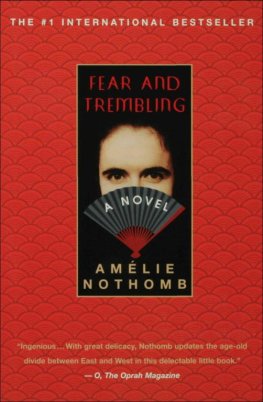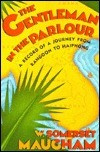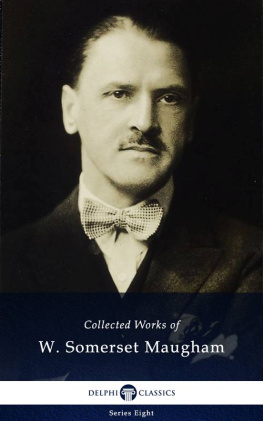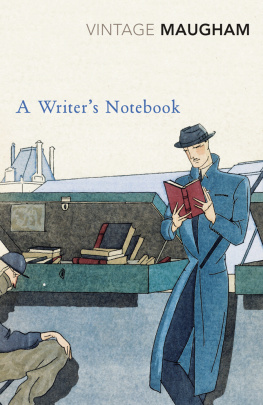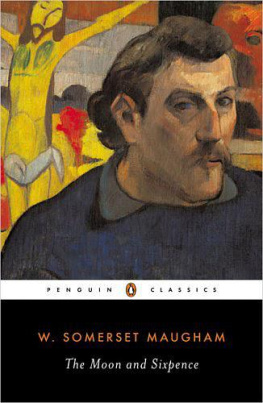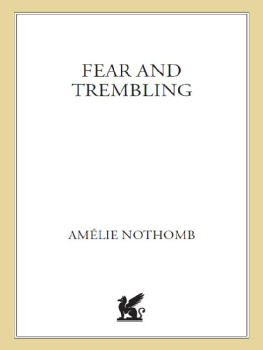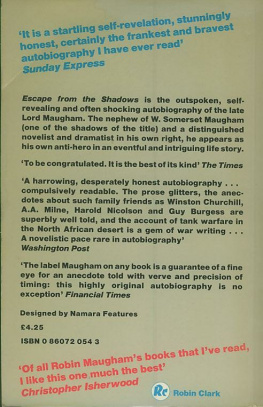W. MAUGHAM - THE TREMBLING OF A LEAF
Here you can read online W. MAUGHAM - THE TREMBLING OF A LEAF full text of the book (entire story) in english for free. Download pdf and epub, get meaning, cover and reviews about this ebook. genre: Science fiction. Description of the work, (preface) as well as reviews are available. Best literature library LitArk.com created for fans of good reading and offers a wide selection of genres:
Romance novel
Science fiction
Adventure
Detective
Science
History
Home and family
Prose
Art
Politics
Computer
Non-fiction
Religion
Business
Children
Humor
Choose a favorite category and find really read worthwhile books. Enjoy immersion in the world of imagination, feel the emotions of the characters or learn something new for yourself, make an fascinating discovery.

- Book:THE TREMBLING OF A LEAF
- Author:
- Genre:
- Rating:4 / 5
- Favourites:Add to favourites
- Your mark:
- 80
- 1
- 2
- 3
- 4
- 5
THE TREMBLING OF A LEAF: summary, description and annotation
We offer to read an annotation, description, summary or preface (depends on what the author of the book "THE TREMBLING OF A LEAF" wrote himself). If you haven't found the necessary information about the book — write in the comments, we will try to find it.
W. MAUGHAM: author's other books
Who wrote THE TREMBLING OF A LEAF? Find out the surname, the name of the author of the book and a list of all author's works by series.
THE TREMBLING OF A LEAF — read online for free the complete book (whole text) full work
Below is the text of the book, divided by pages. System saving the place of the last page read, allows you to conveniently read the book "THE TREMBLING OF A LEAF" online for free, without having to search again every time where you left off. Put a bookmark, and you can go to the page where you finished reading at any time.
Font size:
Interval:
Bookmark:
W. SOMERSET MAUGHAM
THE TREMBLING OF A LEAF
CONTENTS
I. The Pacific
II. Mackintosh
III. The Fall of Edward Barnard
IV. Red
V. The Pool
VI. Honolulu
VII. Rain
VIII. Envoi
I. The Pacific
THE Pacific is inconstant and uncertain like the soul of man. Sometimes it is grey like the English Channel off Beachy Head, with a heavy swell, and sometimes it is rough, capped with white crests, and boisterous. It is not so often that it is calm and blue. Then, indeed, the blue is arrogant. The sun shines fiercely from an unclouded sky. The trade wind gets into your blood and you are filled with an impatience for the unknown. The billows, magnificently rolling, stretch widely on all sides of you, and you forget your vanished youth, with its memories, cruel and sweet, in a restless, intolerable desire for life. On such a sea as this Ulysses sailed when he sought the Happy Isles. But there are days also when the Pacific is like a lake. The sea is flat and shining. The flying fish, a gleam of shadow on the brightness of a mirror, make little fountains of sparkling drops when they dip. There are fleecy clouds on the horizon, and at sunset they take strange shapes so that it is impossible not to believe that you see a range of lofty mountains. They are the mountains of the country of your dreams. You sail through an unimaginable silence upon a magic sea. Now and then a few gulls suggest that land is not far off, a forgotten island hidden in a wilderness of waters; but the gulls, the melancholy gulls, are the only sign you have of it. You see never a tramp, with its friendly smoke, no stately bark or trim schooner, not a fishing boat even: it is an empty desert; and presently the emptiness fills you with a vague foreboding.
II. Mackintosh
HE splashed about for a few minutes in the sea; it was too shallow to swim in and for fear of sharks he could not go out of his depth; then he got out and went into the bath-house for a shower. The coldness of the fresh water was grateful after the heavy stickiness of the salt Pacific, so warm, though it was only just after seven, that to bathe in it did not brace you but rather increased your languor; and when he had dried himself, slipping into a bath-gown, he called out to the Chinese cook that he would be ready for breakfast in five minutes. He walked barefoot across the patch of coarse grass which Walker, the administrator, proudly thought was a lawn, to his own quarters and dressed. This did not take long, for he put on nothing but a shirt and a pair of duck trousers and then went over to his chief's house on the other side of the compound. The two men had their meals together, but the Chinese cook told him that Walker had set out on horseback at five and would not be back for another hour.
Mackintosh had slept badly and he looked with distaste at the paw-paw and the eggs and bacon which were set before him. The mosquitoes had been maddening that night; they flew about the net under which he slept in such numbers that their humming, pitiless and menacing, had the effect of a note, infinitely drawn out, played on a distant organ, and whenever he dozed off he awoke with a start in the belief that one had found its way inside his curtains. It was so hot that he lay naked. He turned from side to side. And gradually the dull roar of the breakers on the reef, so unceasing and so regular that generally you did not hear it, grew distinct on his consciousness, its rhythm hammered on his tired nerves and he held himself with clenched hands in the effort to bear it. The thought that nothing could stop that sound, for it would continue to all eternity, was almost impossible to bear, and, as though his strength were a match for the ruthless forces of nature, he had an insane impulse to do some violent thing. He felt he must cling to his self-control or he would go mad. And now, looking out of the window at the lagoon and the strip of foam which marked the reef, he shuddered with hatred of the brilliant scene. The cloudless sky was like an inverted bowl that hemmed it in. He lit his pipe and turned over the pile of Auckland papers that had come over from Apia a few days before. The newest of them was three weeks old. They gave an impression of incredible dullness.
Then he went into the office. It was a large, bare room with two desks in it and a bench along one side. A number of natives were seated on this, and a couple of women. They gossiped while they waited for the administrator, and when Mackintosh came in they greeted him.
"Talofa li."
He returned their greeting and sat down at his desk. He began to write, working on a report which the governor of Samoa had been clamouring for and which Walker, with his usual dilatoriness, had neglected to prepare. Mackintosh as he made his notes reflected vindictively that Walker was late with his report because he was so illiterate that he had an invincible distaste for anything to do with pens and paper; and now when it was at last ready, concise and neatly official, he would accept his subordinate's work without a word of appreciation, with a sneer rather or a gibe, and send it on to his own superior as though it were his own composition. He could not have written a word of it. Mackintosh thought with rage that if his chief pencilled in some insertion it would be childish in expression and faulty in language. If he remonstrated or sought to put his meaning into an intelligible phrase, Walker would fly into a passion and cry:
"What the hell do I care about grammar? That's what I want to say and that's how I want to say it."
At last Walker came in. The natives surrounded him as he entered, trying to get his immediate attention, but he turned on them roughly and told them to sit down and hold their tongues. He threatened that if they were not quiet he would have them all turned out and see none of them that day. He nodded to Mackintosh.
"Hulloa, Mac; up at last? I don't know how you can waste the best part of the day in bed. You ought to have been up before dawn like me. Lazy beggar."
He threw himself heavily into his chair and wiped his face with a large bandana.
"By heaven, I've got a thirst."
He turned to the policeman who stood at the door, a picturesque figure in his white jacket and lava-lava, the loin cloth of the Samoan, and told him to bring kava. The kava bowl stood on the floor in the corner of the room, and the policeman filled a half coconut shell and brought it to Walker. He poured a few drops on the ground, murmured the customary words to the company, and drank with relish. Then he told the policeman to serve the waiting natives, and the shell was handed to each one in order of birth or importance and emptied with the same ceremonies.
Then he set about the day's work. He was a little man, considerably less than of middle height, and enormously stout; he had a large, fleshy face, clean-shaven, with the cheeks hanging on each side in great dew-laps, and three vast chins; his small features were all dissolved in fat; and, but for a crescent of white hair at the back of his head, he was completely bald. He reminded you of Mr Pickwick. He was grotesque, a figure of fun, and yet, strangely enough, not without dignity. His blue eyes, behind large gold-rimmed spectacles, were shrewd and vivacious, and there was a great deal of determination in his face. He was sixty, but his native vitality triumphed over advancing years. Notwithstanding his corpulence his movements were quick, and he walked with a heavy, resolute tread as though he sought to impress his weight upon the earth. He spoke in a loud, gruff voice.
It was two years now since Mackintosh had been appointed Walker's assistant. Walker, who had been for a quarter of a century administrator of Talua, one of the larger islands in the Samoan group, was a man known in person or by report through the length and breadth of the South Seas; and it was with lively curiosity that Mackintosh looked forward to his first meeting with him. For one reason or another he stayed a couple of weeks at Apia before he took up his post and both at Chaplin's hotel and at the English club he heard innumerable stories about the administrator. He thought now with irony of his interest in them. Since then he had heard them a hundred times from Walker himself. Walker knew that he was a character, and, proud of his reputation, deliberately acted up to it. He was jealous of his "legend" and anxious that you should know the exact details of any of the celebrated stories that were told of him. He was ludicrously angry with anyone who had told them to the stranger incorrectly.
Font size:
Interval:
Bookmark:
Similar books «THE TREMBLING OF A LEAF»
Look at similar books to THE TREMBLING OF A LEAF. We have selected literature similar in name and meaning in the hope of providing readers with more options to find new, interesting, not yet read works.
Discussion, reviews of the book THE TREMBLING OF A LEAF and just readers' own opinions. Leave your comments, write what you think about the work, its meaning or the main characters. Specify what exactly you liked and what you didn't like, and why you think so.

